10 Warning Signs Your House Wiring Could Be Failing
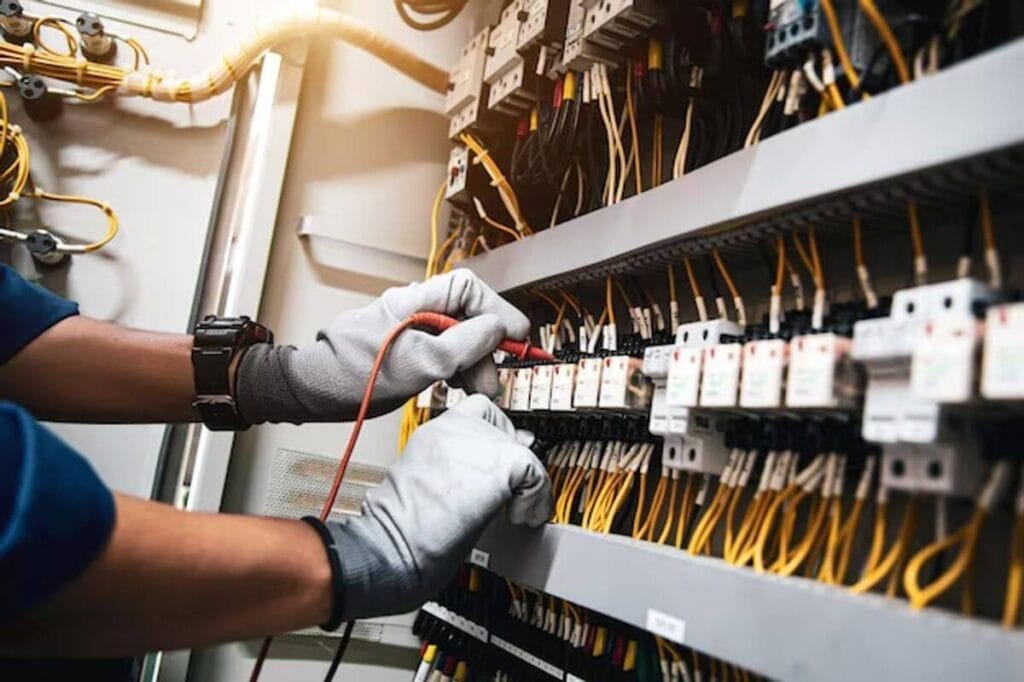
Electricity is the lifeblood of our homes, powering everything from lights to appliances. However, when the electrical wiring in your house starts to fail, it can lead to inconvenient outages, dangerous shocks, or even catastrophic fires. Recognizing the warning signs of failing house wiring is crucial for maintaining a safe and functional home environment. This article will explore 10 warning signs that indicate your house wiring could be in jeopardy and needs immediate attention.
Key Takeaways
- Frequent tripping of circuit breakers or blowing fuses can signal overloaded circuits needing wiring upgrades.
- A tingling sensation when touching appliances suggests loose or damaged wiring that requires immediate repair.
- Flickering or dimming lights often point to outdated or damaged wiring rather than just dying lightbulbs.
- The smell of burning from electrical systems indicates overheating wires, posing an imminent fire risk that demands urgent action.
- Common electrical mistakes like making connections outside electrical boxes can cause short circuits and fires if not corrected.
1. Constantly Tripping Breakers
If your circuit breaker frequently trips, it’s a clear sign of a potential problem in your house’s electrical system. A breaker is designed to trip and shut off power when it detects an overload, preventing damage and potential fires. However, if tripping occurs regularly, it could indicate that your circuits are overloaded or there are underlying issues with your wiring.
- Check for overuse of appliances on a single circuit.
- Identify and unplug any malfunctioning devices.
- Consider if recent additions to your home may be straining the system.
Persistent tripping warrants a professional inspection to ensure your home’s safety and prevent further electrical complications.
2. Tingling Sensation

Feeling a tingling sensation when touching appliances can be alarming. This often indicates a serious electrical problem, such as loose or damaged wiring. Immediate attention is required to prevent potential hazards.
- Ensure all appliances are turned off and unplugged.
- Avoid touching the suspect appliance or wiring.
- Contact a licensed electrician to inspect and repair the issue.
Do not ignore this warning sign. Delaying repairs could lead to more severe consequences, including electrical shocks or fires.
3. Flickering or Dimming Lights
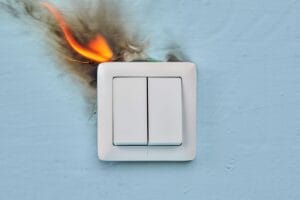
Flickering or dimming lights in your home can be more than just an annoyance; they may signal an underlying electrical issue. If multiple light fixtures dim or flicker, it’s time to investigate.
- Check if the issue is isolated to one light fixture, which might indicate a simple fix.
- If the problem affects multiple fixtures, the cause could be more complex, such as a circuit overload.
Loose connections or a faulty light fixture could be to blame. Don’t ignore these signs, as they can lead to more serious hazards. Consult with a licensed electrician to pinpoint and resolve the issue.
4. Burning Smell
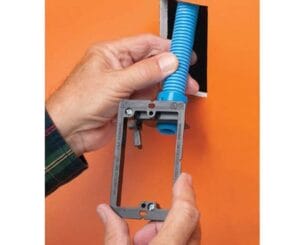
A burning smell emanating from your outlets or appliances is a red flag that should not be ignored. This odor often indicates that the wiring insulation is overheating and melting, posing a serious fire hazard. Immediate steps should be taken to address this issue:
- Identify the source of the smell, whether it’s a specific fixture or the breaker box.
- Turn off the power to the affected area to prevent further damage.
- Contact a licensed electrician to inspect and repair the faulty wiring.
Do not attempt to fix electrical problems on your own if you are not trained to do so. The risk of fire or electrocution is high, and professional intervention is crucial to ensure safety.
5. Faulty Heating System
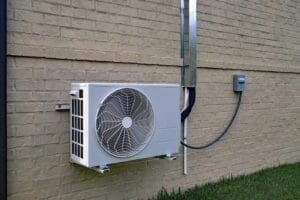
A faulty heating system not only compromises your comfort but also poses significant safety risks. A malfunctioning furnace can be a fire hazard, especially if it’s aging or shows signs of neglect. During inspections, professionals look for blocked chimneys, damaged heat exchangers, and malfunctioning controls.
To ensure safety and efficiency:
- Regularly maintain your heating system.
- Look for signs of age or mold.
- Ensure exhaust flues meet current codes.
If you detect any issues, it’s crucial to address them promptly. Delaying repairs can lead to costly damages and endanger the occupants of the house.
6. Faulty Electrical Wiring

Faulty electrical wiring is a critical concern in any household. Signs of faulty wiring may include frequent circuit breaker trips and unexplained power outages. These issues indicate a compromised electrical system that could lead to an electrical fire if not addressed.
A licensed electrician should inspect your electrical panel and entire system if you suspect faulty electrical wiring. They can identify electrical issues such as damaged wiring that may not be immediately apparent. Remember, working with wire and electrical components carries significant risk and should only be done by a professional.
To prevent the dangers associated with faulty electrical, regular checks by a qualified electrician are essential. They can ensure that your home’s wiring complies with safety standards and functions correctly. If you experience any of the following, contact a licensed electrician immediately:
- Persistent burning smell with no identifiable source
- Outlets that are hot to the touch
- Sparks or sizzling sounds from outlets or switches
Taking these steps can help prevent serious hazards, including electrical fires, and maintain a safe electrical system in your home.
7. Structural Damage
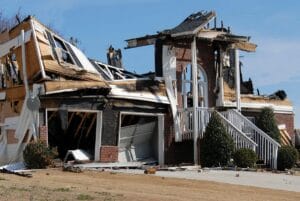
Structural damage in your home can be a silent hazard, often going unnoticed until it becomes severe. Sagging joists, rafters, and door jambs are telltale signs that your house may be suffering from underlying issues that compromise its integrity. These problems can stem from a variety of causes, including:
- Age-related wear and tear
- Water damage
- Insect or rodent infestations
- Poor construction
When structural damage is present, it’s crucial to address it promptly to prevent further deterioration. Consult with a structural engineer to assess the extent of the damage and develop a repair plan. Ignoring these warning signs can lead to more significant and costly repairs down the line, and more importantly, it can pose a serious safety risk to inhabitants.
8. Making Connections Outside Electrical Boxes
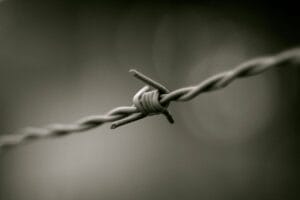
Making connections outside of designated electrical boxes is a risky practice that can lead to accidents. Electrical boxes are designed to contain sparks and heat from a loose connection or short circuit, protecting your home from potential fire hazards.
- If you discover wiring in your home that is connected without a box, the solution is to install a box and rewire the connections inside it.
- For wires that are too short to reach the inside of a new box, you can add 6-inch extensions to ensure a proper fit.
- Always use the correct type of wire connector, especially in tight spaces, to maintain a safe and secure connection.
Remember, using an extension cord as a permanent solution is not safe and should be avoided. Instead, address the issue directly by ensuring all wiring is properly contained within electrical boxes.
9. Hot Outlets
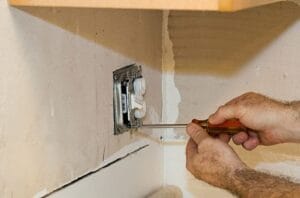
Outlets naturally become warm when powering appliances, but they should never be hot to the touch. If an outlet feels hot, it’s a clear sign of potential danger.
- Immediately unplug any cords from the outlet.
- Avoid using the outlet until the issue has been assessed.
- Consult with a licensed electrician to investigate the cause.
Hot outlets may indicate excessive electrical flow or faulty wiring, which can lead to fires or electrical shocks. It’s crucial to address this issue promptly to ensure the safety of your home and appliances.
10. Flickering Lights
Flickering lights in your home are more than just a nuisance; they are warning signs of potential electrical issues. If multiple fixtures flicker, it’s time to investigate. A single flickering fixture might suggest a simple bulb change is needed, but consistent or widespread flickering is a cause for concern.
- Check if the flicker is isolated to one fixture or occurs throughout the house.
- Loose wiring or an overloaded circuit could be the underlying problem.
- Addressing flickering lights promptly can prevent further hazards.
Don’t ignore flickering lights. They could indicate serious electrical faults that require immediate attention. Consult with a professional electrician to diagnose and resolve the issue.
Conclusion
In conclusion, recognizing the warning signs of failing house wiring is crucial for maintaining a safe and functional home. From constantly tripping breakers to a burning smell, these indicators should not be ignored. Regular inspections and adherence to the National Electrical Code (NEC) can prevent the risks associated with outdated or damaged wiring, such as electrical shocks and fires. If you encounter any of these warning signs, it’s imperative to consult a licensed electrician to address the issues promptly. Keeping an eye out for these signs and taking immediate action can protect your home and family from potential hazards.
Q: What are the warning signs of faulty wiring in a home?
A: The warning signs of faulty wiring in a home include frequent circuit breaker trips, flickering lights, burning smells, damaged insulation on wires, and sparking outlets.
Q: How can I identify a wiring problem in my house?
A: You can identify a wiring problem in your house by checking for discolored outlets, hot switch plates, buzzing sounds, or outlets that feel warm to the touch.
Q: When should I be concerned about signs of bad wiring?
A: You should be concerned about signs of bad wiring when you notice frayed wires, outlets that are not working, or a persistent burning smell coming from electrical fixtures.
Q: What are the dangers of ignoring warning signs of faulty electrical wiring?
A: Ignoring warning signs of faulty electrical wiring can lead to electrical fires, damage to appliances, electric shocks, and potential harm to occupants of the home.
Q: Is it safe to try and fix faulty wiring in a home without calling an electrician?
A: It is not safe to attempt to fix faulty wiring in a home without calling an electrician, as improper repairs can increase the risk of electrical fires and other hazards.
Q: How important is electrical safety when dealing with wiring issues in a house?
A: Electrical safety is paramount when dealing with wiring issues in a house to prevent accidents, fires, and injuries. It is crucial to follow safety precautions and seek professional help when needed.
Q: What should I do if I suspect I have a problem with my electrical wiring?
A: If you suspect you have a problem with your electrical wiring, it is essential to immediately turn off the power to the affected area and contact a licensed electrician to inspect and address the issue.
Q: What are the 8 signs that could be a warning of bad wiring in your house?
A: The 8 signs that could be a warning of bad wiring in your house include dimming or flickering lights, frequent circuit breaker trips, burning smells, hot outlets or switch plates, sparks from outlets, sizzling sounds, discolored outlets, and tingling sensations when touching appliances.
